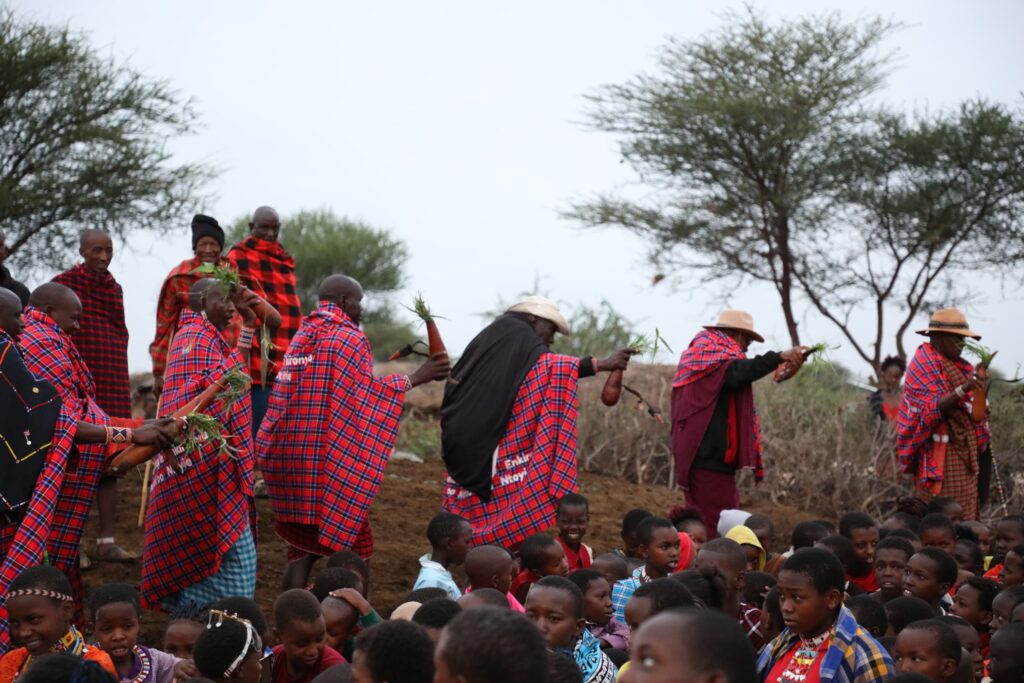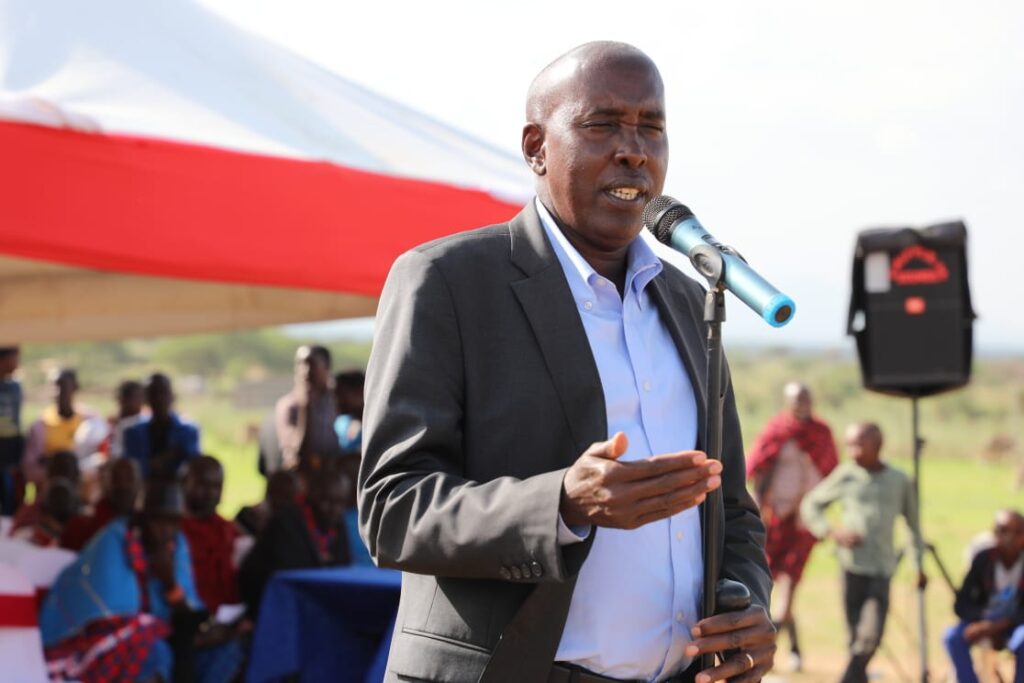It’s a chilly Tuesday morning in Olgulului Village, Kajiado County, where the vast landscape stretches endlessly, dotted with acacia trees and sparse shrubs. Amid this expanse, a group of about 460 girls makes their way to a nearby homestead before dawn. They are on a mission—to receive blessings from Maasai elders. Timing is critical; if they arrive late and the cattle have already left their sheds, it will be seen as a breach of tradition, warranting a fine.

At the homestead, 10 Maasai elders gather to conduct the blessing. The girls squat in preparation, and the elders, chanting in Maa, move among them, sprinkling milk and honey—symbols of purity and cultural continuity. This blessing was conducted on the morning of a bride’s wedding day which happened after she was cut. But today, it is an acceptance of the alternative rite of passage the girls have gone through, replacing a previously harmful practice, reimagined to honor Maasai traditions without causing harm.
Among the elders is Mzee Richard, a respected Maasai leader whose daughter, Brenda, is part of the ceremony. He reflects on the significance of the moment.
“Things have changed now,” he says. “This blessing signifies that we accept these girls’ alternate transition into womanhood.”
The blessings set the stage for the ARP graduation later that day at Olgulului Primary School. 460 girls, aged 7 to 17, are graduating after completing a two-day training supported by Amref Health Africa through the ARP/WASH project. This training provides a culturally sensitive alternative to female genital mutilation/cutting (FGM/C), promoting education and empowerment.
Despite significant progress in reducing FGM/C in Kajiado County, challenges persist. Emerging issues include cross-border FGM practices, the medicalization of the procedure, and a troubling trend toward lowering the age of cutting.
For these girls, however, the ceremony and training symbolize a hopeful step toward a future free from harmful practices, rooted in cultural pride and personal dignity.
Stakeholder Support
The event brought together stakeholders, including Amref Health Africa, the Malaika Initiative, the Anti-FGM Board, FPFK, the Kajiado County Government, and community leaders. Gilbert Wangalwa, representing Amref, emphasized the organization’s 17-year commitment to fighting FGM in the region, attributing success to strong partnerships with the county government and the community.
“Through the collaborative efforts of state and non-state actors, along with strong community leadership, Kajiado County has made remarkable progress in reducing the prevalence of FGM/C from 78% in 2014 to 24% in 2022. This progress would not have been possible without the strong partnership of the Kajiado County Government and the community.” Wangalwa noted.
Sabina Lakara, a Community Health student at Amref International University and an FGM advocate, shared her inspiring journey with the graduating girls.
“I am a testament to the success of ARP,” she said. “Empowering girls through education made me who I am today. Education is freeing. Choose freedom.”
Cultural Transformation

Kajiado County Governor Joseph Ole Lenku, the event’s chief guest, applauded the ARP initiative. “Even though the Maa people are deeply rooted in tradition, it’s encouraging to see culturally significant yet safe alternatives,” he said. He also praised Amref for its impactful work and called for sustainable livelihoods for former circumcisers, urging the community to embrace collective action against FGM.
The governor acknowledged the patriarchal nature of the community and the importance of male involvement. “Today, we stand united to say no to FGM,” he concluded.
The ARP Graduation was more than a celebration—it was a testament to change. As the girls celebrated their transition, the ceremony marked a collective stand by the community to protect its daughters and uphold their rights while honouring tradition in a safer, empowering way and dignity.
Nyambura Gitonga, Communications, Family and Reproductive Health Program, Amref Health Africa
